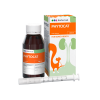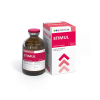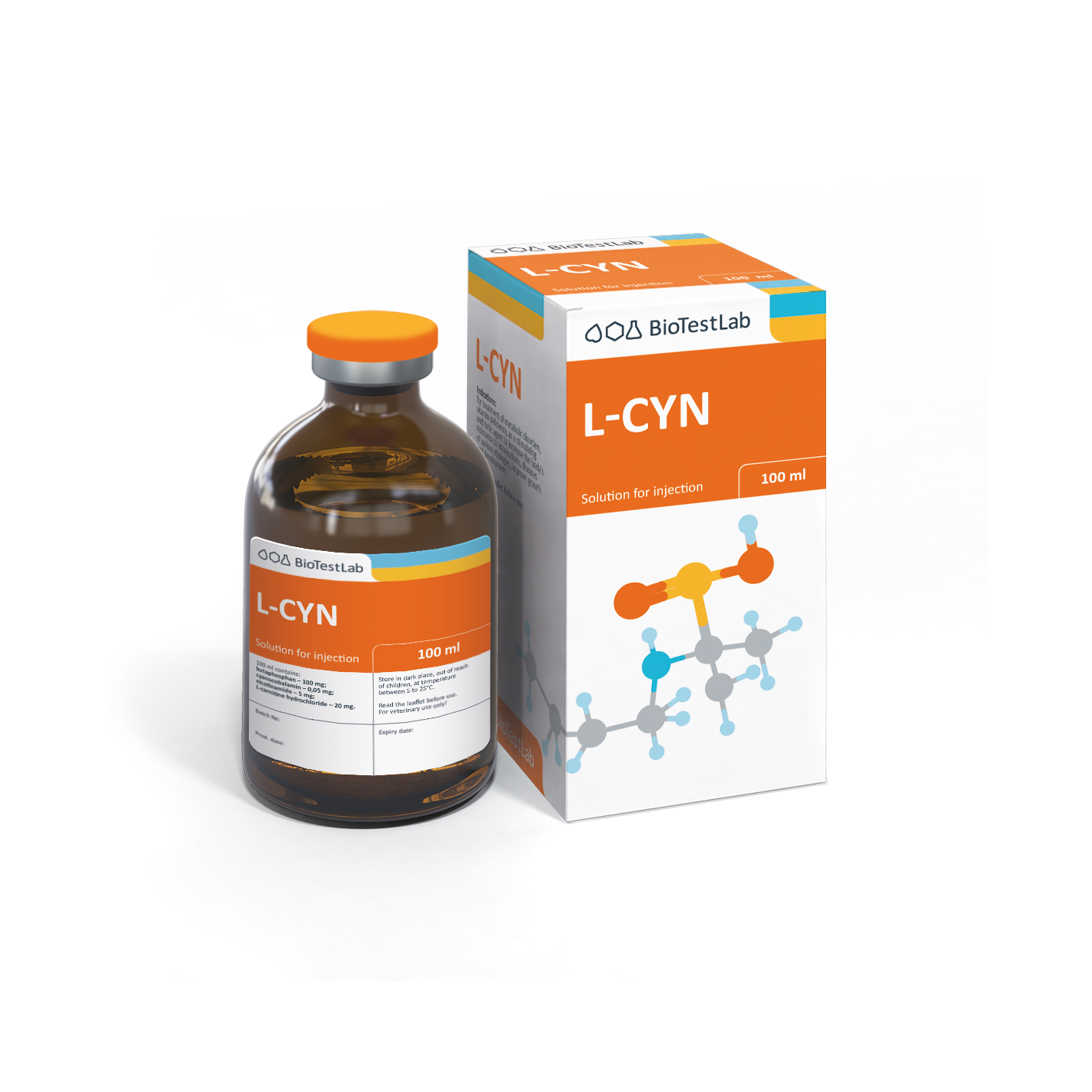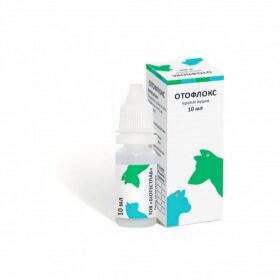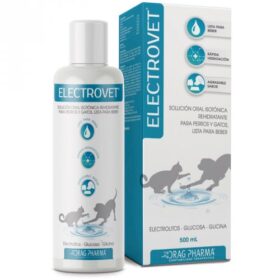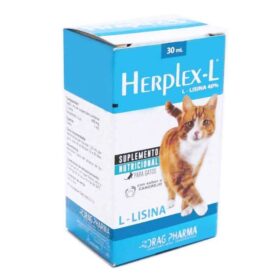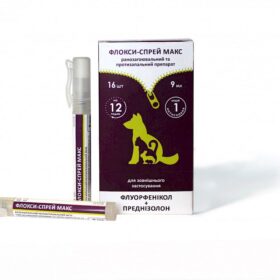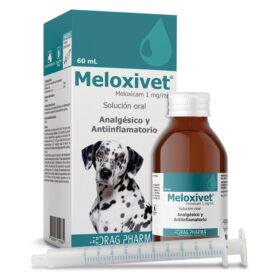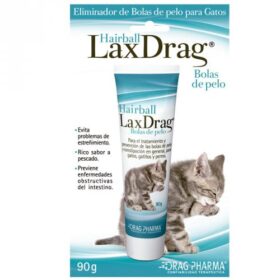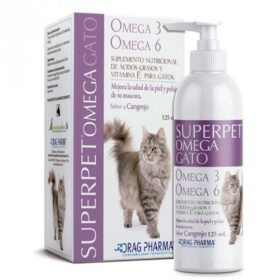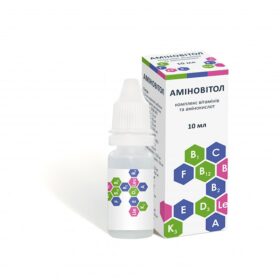- Your cart is empty
- Continue Shopping
Product Description
COMPOSITION
1 ml of the drug contains active ingredients:
butafosfan – 100 mg;
cyanocobalamin – 0.05 mg;
nicotinamide – 5 mg;
L-carnitine hydrochloride – 21 mg.
Excipients.
PHARMACOLOGICAL PROPERTIES
L-cyn is a complex drug, the effect of which is due to the properties of the active ingredients: butafosfan, vitamin B complex (vitamin B12, vitamin B3 (PP)) and the vitamin-like substance B-group (L-carnitine). The drug has tonic properties, normalizes metabolic and regenerative processes, provides a stimulating effect on protein, carbohydrate and fat metabolism, increases the body’s resistance to the effects of adverse environmental factors, infections and toxins, and promotes the growth and development of animals, including birds.
Butafosfan is an organic phosphorus compound that affects a number of the assimilation processes in animals’ body, stimulates the protein synthesis, accelerates the growth and development of animals, normalizes the liver functioning, increases the nonspecific resistance of the body; it contributes to the formation of the bone tissue. In stressful situations butafosfan normalizes the level of the stress hormone – hydrocortisone – thereby improves the utilization of glucose in the blood and contributes to the preservation of the body’s energy resources. Butafosfan does not accumulate in the body and does not cause adverse effects typical to stimulants and inorganic phosphorus.
Cyanocobalamin (vitamin B12) as a metabolite, activates the metabolism of carbohydrates, proteins, and lipids, promotes the synthesis of labile groups in the formation of choline, methionine, nucleic acids, creatine; accumulation of compounds with sulfhydryl groups in erythrocytes. As a growth factor, it stimulates bone marrow function, which is necessary for normoblastic erythropoiesis.
Cyanocobalamin normalizes the functioning of the liver and nervous system, activates the blood coagulation system, and in high doses causes an increase in thromboplastic activity and prothrombin activity. Vitamin B12 is necessary for the formation of red blood cells in the bone marrow. In the body, it binds to proteins by 90%. It is excreted through the kidneys and with bile. It penetrates the placental barrier.
Nicotinamide (Vitamin B3 (PP)) stimulates the production of nicotinamide adenine dinucleotide phosphate (NADPH) and nicotinamide adenine dinucleotide (NAD), which regulate the course of most redox reactions, ensuring the normalization of many types of metabolism (including energy).
It takes part in the metabolism of fats, proteins, amino acids, purines, tissue respiration, glycogenolysis. Nicotinamide contributes to the body’s resistance to infectious diseases, has detoxification properties, it is rapidly distributed in the tissues and passes through the placental barrier. It is metabolized in the liver to form N-methyl-nicotinamide, methyl-pyridone-carboxamides, glucuronide and a complex with glycine. It is excreted through the kidneys with urine.
L-carnitine is a substance of natural origin, related to vitamin B complex (the so-called vitamin B11), it is a product of lysine and methionine biosynthesis. It performs several important functions in the body, including: detoxification, stimulation of metabolic processes, strengthening of blood vessels, and stimulation of tissue regeneration.
Its use leads to an increase in body endurance, an improvement in heart function, an increase in muscle mass due to the acceleration of metabolic processes in cells, an improvement in the penetration of vitamins and minerals into cells, and the removal of degradation products and a reduction in the risk of fatty liver disease.
ADMINISTRATION
The drug is administered to camels, cattle, calves, pigs, piglets, sheep, lambs, goats, goatling, dogs, cats, rabbits, fur animals and poultry (laying hens, young laying hens, broilers) in case of metabolic disorders, a vitamin deficiency, as a stimulant and tonic agent to increase the body’s resistance to intoxication, diseases of different etiologies, to improve growth and development, in complex therapy for deficiency in the body of calcium and magnesium, during parturition, postpartum complications (postnatal paresis); in the rehabilitation and recovery period after surgeries, stresses; to normalize the hemopoiesis and liver function; in case of considerable physical loads.
DOSAGES
The drug is administered to animals intramuscularly, subcutaneously or intravenously (slowly) once a day for 4-5 days in doses:
| ANIMALS SPECIES | DOSE OF THE DRUG, PER ANIMAL, ML |
| camels, cattle | 10-25 |
| calves | 5-12 |
| pigs | 2.5-10 |
| piglets | 1-2.5 |
| sheep, goats | 2.5-8 |
| lambs, goatlings | 1.5-2.5 |
| dogs, cats, rabbits, fur animals | 0.5-2.5 |
For poultry, the drug is administered with drinking water for 4-5 days in doses:
| POULTRY SPECIES | DOSE OF THE DRUG, ML/1 L OF DRINKING WATER |
| laying hens, broilers | 2.0-3.0 |
| young laying hens | 1.0-1.5 |
In critical cases, and for much-weakened animals, the drug is used in half a dose.
If necessary, repeat the treatment course at the same dose after 8-15 days.
CONTRAINDICATIONS
There are no contraindications.
PRESENTATION AND PACKAGING
Glass vials of 10, 50, 100 ml or polymer vials of 10, 50, 100, 250, 500 ml and 1 L.
STORAGE CONDITIONS
Store in dark place, out of the reach of children between 5°С to 25°С.
SHELF LIFE
24 months. After first vial opening – 28 days if stored in a dark place at 5°С to 25°С.

